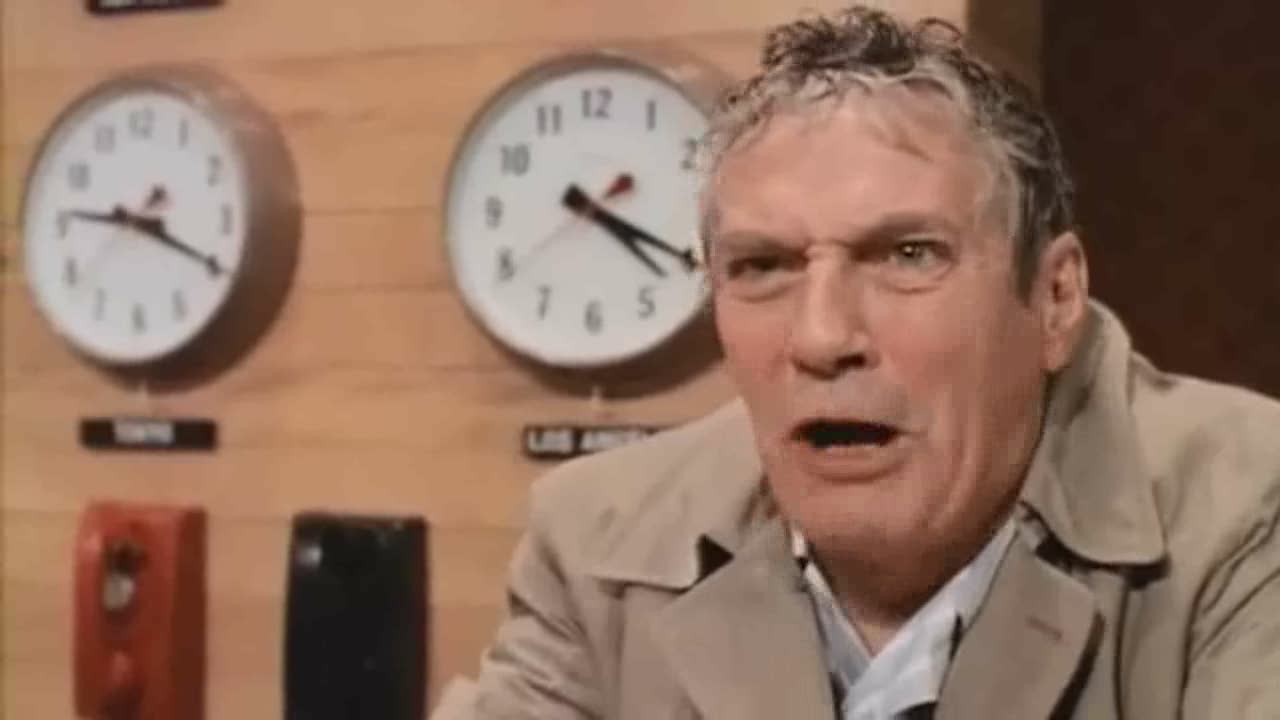I just watched Network, the classic 1976 film. I’ve said it before, but I’ll say it again: our reality today resembles the satire of the past to an alarming degree.
Network predicts the blurring of entertainment, opinion and news on television almost perfectly. It’s as though screenplay author Paddy Chayefsky traveled to our time, watched a couple of hours of cable news and, upon returning to the 70’s, started work on his screenplay.
Already in the 70’s, ratings determined the editorial direction of each news broadcast. Telling the truth is one value; getting as many people as possible to watch your show is another.
If a journalistic institution is doing well, truth has a chance. When times get rough, it’s time to focus on ratings regardless of truth.
Network takes this truth to its logical conclusion. Howard Beale, a respected newsman about to be fired because of bad ratings, calmly states he intends to kill himself on air. The resulting publicity makes him a sensation, and his follow-up rants only accelerate this.
Beale’s rants are perfectly out of sync with the cool headed TV journalism of the 70’s, but wouldn’t seem out of place on Fox News today. At all.
This is what makes watching Network in 2011 so compelling: the shift away from reason and towards a shallow populism is predicted as the inevitable result of the quest for ratings.
The media landscape is radically different today than it was in the 70’s. There are hundreds of TV channels competing for time, and then you have the Internet.
Do we ever have Internet. It’s gotten to the point where a two hour story is considered old, and as such not worth digging into more.
The quest for attention, for ratings, is triumphing over truth. Write the most sensational headline possible and you’ll get high ratings. Throw in some search engine friendly terms, because we’ve got to get traffic up. Avoid overly depressing topics; they won’t play well on Twitter or Facebook.
Throw a cat picture in there; that will attract some attention.
The Internet is a social medium lacking central control. It’s still evolving, and it’s not too late for us to make it productive. It’s not going to be easy, but let’s see what’s possible. Who’s with me?

I find this so true of any thoughtful science fiction of the 1970’s when everyone was so enamored with the future. Really Gene Roddenberry’s utopian alliance of planets storyline is still so popular because of its pure unrealizable fantasy. Attention span has shortened to 10 minutes, Jenny Jones causes the death of a guest at the hands of another, that Jerry Springer even exists on television…Network predicts all this as a nightmare scenario and instead of heading it off we’ve embraced it!
Take it to its net logical step: Logan’s Run. Anyone over 30 is considered theoretically dead anyway. Why not eliminate them so everyone can enjoy the decadence and prosperity we’ve produced for our entertainment. Virtual sex, pseudo relationships, artificial interaction (and insemination) all are in their infancy but easily extended into the world of runners and sandmen. Maybe, as in that film, wisdom and experience and simply age will become something of value again!
Oh! There’s Roddenberry, rearing his grizzled head again!
And by the way, “Who IS your daddy?”